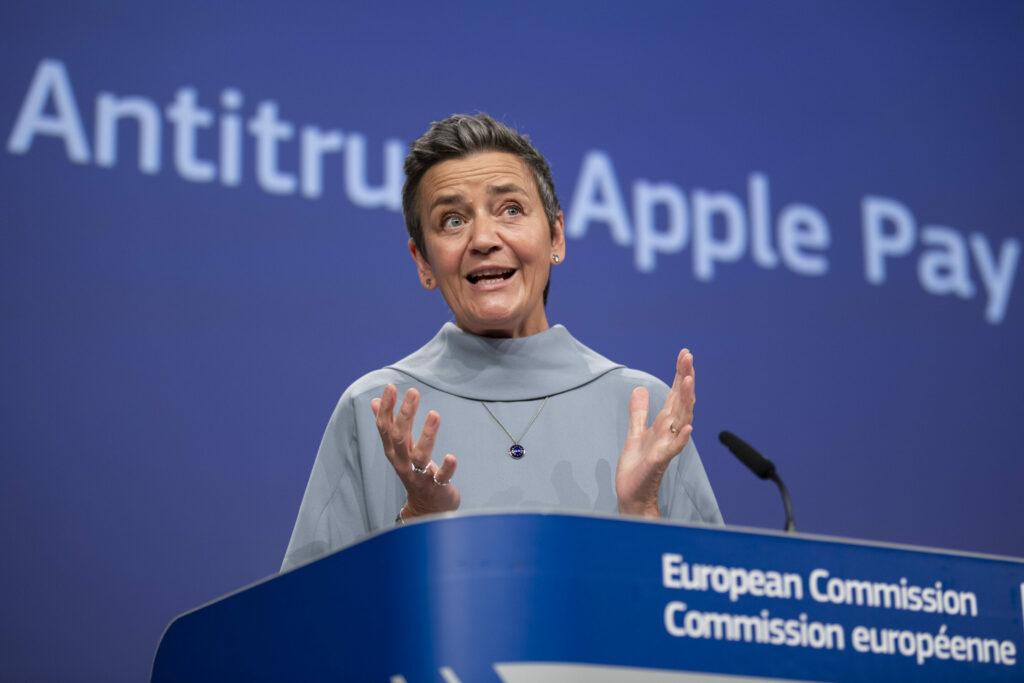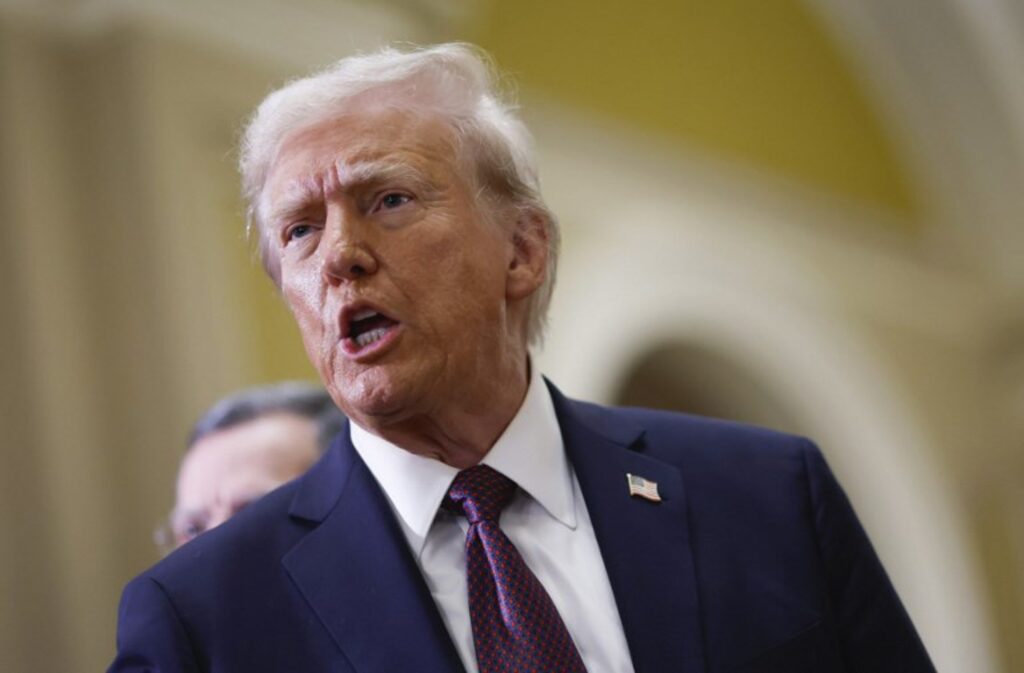US President Donald Trump said on Sunday that European products would be subject to tariffs "very soon," following the tariffs he has imposed on products from Canada, Mexico and China.
Trump previously announced 25% tariffs on products from Canada and Mexico, with exceptions of 10% for energy products from Canada. Asked by the BBC if the EU was next, Trump said "it will definitely happen", while also suggesting a deal could be "worked out" with the United Kingdom.
"[The EU] are really taking advantage of us," Trump said. "We have over $300 billion deficit. They don't take our cars, they don't take our farm products, they take almost nothing. And we take everything from them: millions of cars, tremendous amounts of food and farm products. The EU is really out of line; it is an atrocity, what they have done. I do not have a timetable but it is coming very soon."
'Doing our own things'
In an interview published on Monday with The Capital Forum's Javier Espinoza, former European Commissioner for Competition Margrethe Vestager said that while the EU should take note of the fact that the US's approach has "changed dramatically," but should not lose sight of its own issues.
"We have a lot of things to do," she said "And if you are engaged in an argument and a tit-for-tat, that will divert your attention from the important things that you have going on which are really, really important."
"Europe has a lot of things going on in Europe. I think it is really important to focus on that. Because as I said, there are so many things that are still ongoing in this world," Vestager said. "And a lot of those take our attention away from doing our own things."
In her role as Commissioner for a Europe Fit for the Digital Age, Vestager was behind the setting up of the EU's Digital Services Act (DSA) and Digital Markets Act (DMA). "It is an asymmetric piece of legislation. So, if you are a small business, you have a very light touch. If you are a big business, you have real obligations. And the obligations that you have are that you need to have a system to be able to take down posts that are illegal."

Margrethe Vestager. Credit: European Parliament / Lukasz Kobus
She pointed out that it can be hate speech, as is illegal in most European countries, excitement to violence and terrorism, or child abuse. "You need to have that system and you need to flag to people whose posts you have taken down that you have taken it down so that they can complain about it and eventually go to the court."
Secondly, she said that these acts require companies to make a risk assessment of their services. "Can my services be misused to undermine democracy? Or can they be dangerous to mental health? And then you need to give researchers access."
However, social networking site X by Elon Musk, escaped its obligations under that act. His influence in global politics came as a surprise to Vestager, she said. "Why is it that people think that when a man has money, what he says makes sense?"
Speaking about Musk using his platform to influence the upcoming German elections in favour of the far-right AfD party, Vestager said that "our democracies are strong enough for someone to come and say their opinion."
EU can make up its own mind
What bothers her is "the very idea that because you have money, you have a say," she said. "Our democracies are built on the very fundamental idea that every individual matters. This fundamental principle distinguishes us from a number of other ways of governing, where the individual does not matter."
She also referred to the French elections. "There have been a lot of discussions in Europe about Marine Le Pen's party being supported by Russian funds, hidden, covertly. It was not obvious. Was it a loan? What was it? So, it's not a new thing that someone is trying to influence European elections."
"The point is that we, as Europeans, in the countries where we have our right to vote, can make up our own mind," she said.

